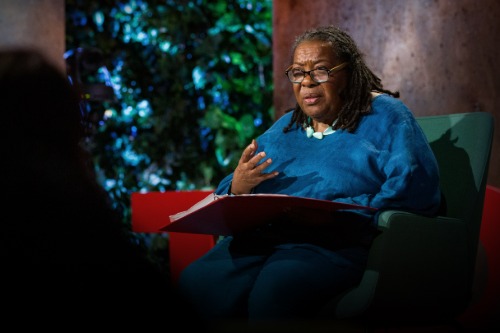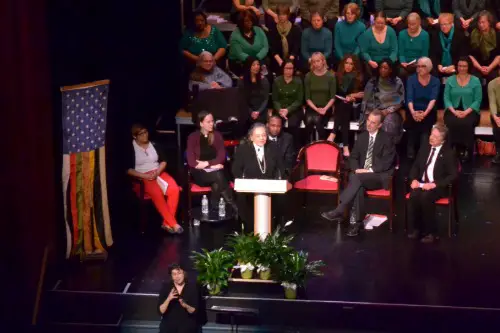The story of the U.S. Civil Rights Movement often brings to mind towering figures like Rosa Parks, Martin Luther King Jr., and Malcolm X. While their contributions are monumental, the movement was propelled by a vast network of unsung heroines—women whose courage, resilience, and vision changed history. Yet, their names rarely grace textbooks or Hollywood scripts. This is their story, and more importantly, their inspiration. These women didn’t just fight for equality—they lived in a way that calls us to live more courageously today.
Ruby Sales: The Activist Who Chose Love Over Hate

Ruby Sales’s journey began with a harrowing moment that could have consumed her with bitterness. In 1965, at the age of 17, Sales was part of a group protesting for voting rights in Lowndes County, Alabama. One fateful day, while entering a store, a racist man pulled out a shotgun and aimed it at her. Just as he fired, a fellow activist, Jonathan Daniels, stepped in front of her and took the bullet meant for her.
Sales could have let that moment define her with grief or rage, but instead, she chose to dedicate her life to the pursuit of justice and reconciliation. After the Civil Rights Movement, Sales became a theologian and founded the SpiritHouse Project, which addresses racial and economic injustice. Her work centers on creating spaces for truth-telling, healing, and community building.
Sales’s story teaches us that true activism isn’t just about dismantling systems of oppression—it’s about building something better in their place. It’s about choosing love over hate, even when hate feels easier.
Living like Ruby Sales means asking the hard questions: How do we heal from collective trauma? How do we transform our anger into action? And, perhaps most importantly, how do we create spaces where others feel seen, heard, and valued?
Diane Nash: The Strategist Who Stood Her Ground

If courage had a face, it would look a lot like Diane Nash’s. Born in 1938 in Chicago, Nash became one of the fiercest leaders of the Civil Rights Movement by the time she was in her early twenties. While attending Fisk University in Nashville, she became involved in the sit-in movement, a series of nonviolent protests at segregated lunch counters.
What set Nash apart was her strategic brilliance. She wasn’t just brave—she was methodical. When the original Freedom Riders were brutally attacked in Alabama, Nash didn’t flinch. She organized a second wave of riders, fully aware of the dangers, because she knew that halting the campaign would send the wrong message to segregationists. Her leadership forced the federal government to confront the violence and injustice of segregation head-on.
Nash’s work wasn’t without personal sacrifice. As a young, pregnant woman, she faced jail time for her activism and once said, “If I go to jail, my child will be born in jail.” Her resolve was rooted in a profound sense of justice.
Living like Diane Nash means being unshakable in the face of adversity. It’s about standing firm on your principles, even when the cost is high. When was the last time you took a stand for something that mattered? Nash’s life challenges us to not just take risks but to take calculated, meaningful risks for a greater cause.
Septima Poinsette Clark: The Educator Who Empowered a Movement
Septima Clark believed in the power of education to unlock doors and shatter chains. Born in 1898 in Charleston, South Carolina, Clark grew up in the segregated South, where Black children were denied basic educational opportunities. As a teacher, she witnessed firsthand how illiteracy was used as a weapon to disenfranchise Black citizens. In response, she made it her life’s work to teach—and empower—her community.
Clark developed Citizenship Schools, which taught Black adults how to read and write, with the ultimate goal of enabling them to pass the literacy tests required for voter registration. These schools were more than classrooms; they were incubators for civil rights leadership. Alumni of Clark’s programs went on to spearhead sit-ins, marches, and other forms of resistance. Martin Luther King Jr. famously called her “the mother of the movement.”
Her story teaches us that change often begins with quiet acts of service. In a world obsessed with big gestures and viral moments, Clark’s work reminds us of the transformative power of investing in others. How might our own communities change if we took the time to equip someone else with the tools to succeed?
Living like Septima Clark means believing in the long game—knowing that even small, incremental steps can lead to seismic shifts in society.
Carrying Their Legacy Forward
The stories of Septima Clark, Diane Nash, and Ruby Sales are more than historical footnotes—they’re blueprints for how to live a meaningful life. Their courage, determination, and compassion remind us that the fight for justice is ongoing and that every one of us has a role to play.
In your daily life, you don’t have to organize a Freedom Ride or create a nationwide education program to make a difference. Start small: mentor a young person, speak out against injustice, or volunteer for a cause you believe in. Like these heroines, trust that your actions, no matter how small, can ripple outward in ways you can’t even imagine.
The Civil Rights Movement wasn’t built on the efforts of a few; it was carried forward by the many. Let’s honor these women not just by remembering their names, but by living with their same sense of purpose and possibility. When you do, you’ll find that their stories aren’t just history—they’re a call to action.
